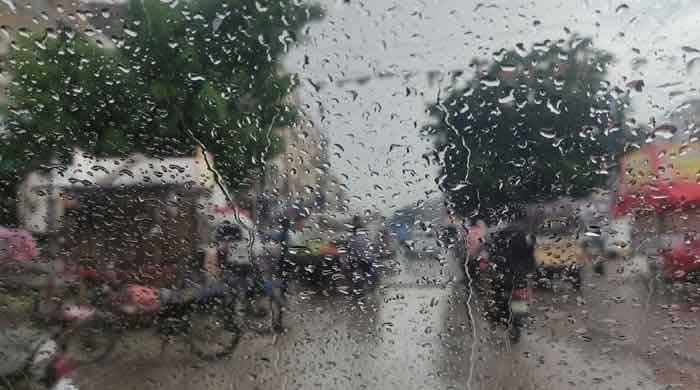NCDC issues health warning on cholera, yellow fever and dengue fever
As Nigeria’s flood season intensifies, the Nigeria Centre for Disease Control and Prevention (NCDC) has issued a nationwide health alert over the rising threat of waterborne and vector-borne diseases.
The agency has warned of a surge in cholera, yellow fever and dengue fever cases, especially in states already experiencing floods and heavy rainfall.
The agency made this known in a statement titled, “Protecting public health during flood season: NCDC issues nationwide alert on cholera, yellow fever, and dengue fever,” and signed by the Director General of NCDC, Jide Idris.
The alert follows a recent impact-based weather forecast from the Nigerian Meteorological Agency (NiMet), which identified Sokoto, Kaduna, Zamfara, Yobe and several other states as facing heightened risk of flooding throughout July.
NiMet warned that the floods could cause large-scale displacement, disrupt livelihoods, and worsen the spread of infectious diseases.
According to the NCDC, floodwaters commonly contaminate drinking water sources by washing faecal matter and other pathogens from soil and sewage systems into rivers, lakes and wells, leading to outbreaks of diseases like cholera.
In addition, stagnant pools of water left behind by heavy rains serve as breeding sites for mosquitoes that transmit yellow fever, dengue and malaria.
Nigeria is currently battling a rise in cholera infections.
As of 29 June, 34 states have reported suspected cases, with Zamfara alone accounting for 32 per cent. Other heavily affected states include Bayelsa, Adamawa, Delta, Lagos and Rivers.
Cholera is a potentially fatal disease that causes severe watery diarrhoea and rapid dehydration. It is transmitted through contaminated food or water and can kill within hours if not treated promptly.
The risk of infection typically rises during the rainy season, when flooding worsens water and sanitation conditions in many communities.
While cholera continues to spread, NCDC has also confirmed yellow fever and dengue fever outbreaks in several states.
Yellow fever, a mosquito-borne viral disease, has been confirmed in Abia, Anambra, Edo, Ekiti, Lagos and Rivers, with seven cases verified so far.
Although no deaths have been recorded, the NCDC noted that a single confirmed case qualifies as an outbreak under national guidelines.
Vaccination remains the most effective tool for preventing yellow fever.
The NCDC, in partnership with the National Primary Health Care Development Agency (NPHCDA), is supporting affected states with laboratory diagnostics, mass immunisation drives, and outbreak investigation efforts.
In Edo State, the Centre has confirmed an outbreak of dengue fever between 9 and 13 June following laboratory testing.
Dengue fever, which is also spread by Aedes mosquitoes, presents with high fever, headache, sore throat, joint pain and swollen glands. The symptoms often resemble malaria, making early diagnosis critical.
Health workers have been urged to maintain a high index of suspicion and to report all suspected cases, as dengue is a notifiable disease under Nigerian law.
To curb the spread of these diseases, the NCDC says it is coordinating a national response involving rapid deployment of outbreak teams, distribution of treatment supplies, enhanced surveillance, and community-level risk communication.
The Centre advised Nigerians to eliminate stagnant water around their homes, cover water storage containers, and use insecticide-treated mosquito nets and repellents to guard against mosquito bites.
It also urged all eligible persons to get vaccinated against yellow fever, maintain proper hygiene including regular handwashing, and avoid open defecation.
People experiencing symptoms such as diarrhoea or persistent fever are advised to seek prompt medical attention rather than self-medicating, especially since symptoms of some mosquito-borne diseases may mimic malaria.
You may also like...
Diddy's Legal Troubles & Racketeering Trial

Music mogul Sean 'Diddy' Combs was acquitted of sex trafficking and racketeering charges but convicted on transportation...
Thomas Partey Faces Rape & Sexual Assault Charges

Former Arsenal midfielder Thomas Partey has been formally charged with multiple counts of rape and sexual assault by UK ...
Nigeria Universities Changes Admission Policies

JAMB has clarified its admission policies, rectifying a student's status, reiterating the necessity of its Central Admis...
Ghana's Economic Reforms & Gold Sector Initiatives

Ghana is undertaking a comprehensive economic overhaul with President John Dramani Mahama's 24-Hour Economy and Accelera...
WAFCON 2024 African Women's Football Tournament

The 2024 Women's Africa Cup of Nations opened with thrilling matches, seeing Nigeria's Super Falcons secure a dominant 3...
Emergence & Dynamics of Nigeria's ADC Coalition

A new opposition coalition, led by the African Democratic Congress (ADC), is emerging to challenge President Bola Ahmed ...
Demise of Olubadan of Ibadanland
Oba Owolabi Olakulehin, the 43rd Olubadan of Ibadanland, has died at 90, concluding a life of distinguished service in t...
Death of Nigerian Goalkeeping Legend Peter Rufai

Nigerian football mourns the death of legendary Super Eagles goalkeeper Peter Rufai, who passed away at 61. Known as 'Do...




